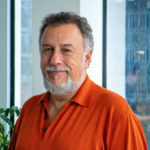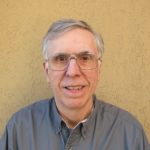Date: October 31, Saturday, Noon-1:30 PM
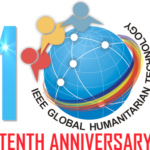 GHTC 2020 celebrates the 10th anniversary for IEEE GHTC. The anniversary program will consist of some remarks and two panel discussions, one on the evolution of GHTC and the other on IEEE’s role in Humanitarian Technology.
GHTC 2020 celebrates the 10th anniversary for IEEE GHTC. The anniversary program will consist of some remarks and two panel discussions, one on the evolution of GHTC and the other on IEEE’s role in Humanitarian Technology.
GHTC Evolution – Panel – IEEE GHTC has allowed members to showcase projects and be exposed to resources that were not commonly known within the IEEE family. GHTC created a community of volunteers who wanted to make a difference and become a facilitator for volunteers, university programs, NGO’s, foundations, etc. to work together. The conference mission and goals have morphed over the years. The approaches to member and service related projects have changed. The addition of academic research presentations and university projects have all had an impact on the Conference.
IEEE’s Role in Humanitarian Technology and Sustainable Development – Panel – Realizing IEEE’s Vision for Aligning the “Advancing Technology for Humanity” from an Aspirational Statement to Promoting Member Engagement with Sustainable Development and Humanitarian Service Providers. Panelists will explore how IEEE operationalized the broader IEEE humanitarian interests into an event (or series of events). The approaches to member and service related projects have changed.
“GHTC evolution” – Panel Description
IEEE GHTC has allowed members to showcase projects be exposed to resources that were not commonly known within the IEEE family. GHTC created a community of volunteers who wanted to make a difference and become a facilitator for volunteers, university programs, NGO’s, foundations, etc. to work together. The conference mission and goals have morphed over the years. The IEEE’s approaches to member and service related projects have changed. The addition of academic research presentations and university projects have all had an impact on the Conference. As of year-end 2019, total downloads of all papers since the 1st GHTC in 2011: 333,786 – see published GHTC proceedings in IEEE Xplore.
This panel session will engage GHTC Founders is a discussion on how GHTC came to be and how it has evolved over the past ten years.
Panelists
- Paul Kostek
- Keith Moore
- Mike Andrews
- Ed Perkins
Paul Kostek is a consultant and IEEE volunteer. Currently he is a member of the IEEE Humanitarian Activities Committee and was the inaugural Chair of GHTC in 2011 and 12.
KEITH MOORE
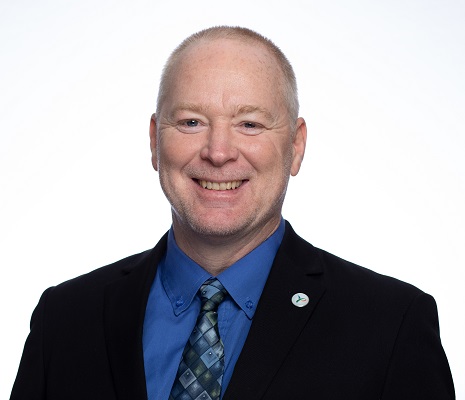 Keith Moore currently works for the United States Army Information Systems Engineering Command at Fort Huachuca, Arizona and volunteers as the IEEE Region 6 Director. His career has taken him around the world to design, implement, and maintain computer and communications systems. He has served in a number of volunteer and other organizations to work with others for the good of all stakeholders. These experiences have involved organizations as varied as federal and state governments, Big Brothers/Big Sisters, local and indigenous churches, Civil Air Patrol, Scouts, Cyber Patriot Competition, and others. He has served as a professional engineer, adjunct engineering professor, science fair judge, mentor, and coach. He holds a bachelors degree in electrical and computer engineering and a masters degree in business administration and management information systems.
Keith Moore currently works for the United States Army Information Systems Engineering Command at Fort Huachuca, Arizona and volunteers as the IEEE Region 6 Director. His career has taken him around the world to design, implement, and maintain computer and communications systems. He has served in a number of volunteer and other organizations to work with others for the good of all stakeholders. These experiences have involved organizations as varied as federal and state governments, Big Brothers/Big Sisters, local and indigenous churches, Civil Air Patrol, Scouts, Cyber Patriot Competition, and others. He has served as a professional engineer, adjunct engineering professor, science fair judge, mentor, and coach. He holds a bachelors degree in electrical and computer engineering and a masters degree in business administration and management information systems.
MIKE ANDREWS
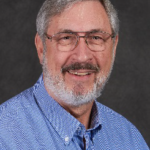 Mr. Andrews is Managing Partner of Andrews & Associates, a consulting firm specializing in new product development, business and management development, and Emergency Planning for business, schools and government entities.
Mr. Andrews is Managing Partner of Andrews & Associates, a consulting firm specializing in new product development, business and management development, and Emergency Planning for business, schools and government entities.
Mr. Andrews is a Senior Life Member of IEEE and is currently serving IEEE members as the Past Director (Director 2013-14), AdCom member for the Technology and Engineering Management Society (TEMS) and past Vice President of Membership, Marketing and Communications; IEEE Vision, Innovation and Challenges Summit (VICS) Chair; IEEE Honors Awards Event Committee; IEEE Life Members Committee and Region 6 Life Members Affinity Group Coordinator; EPICS Committee; Executive Producer of the IEEE Rising Stars Conference, and member of the Phoenix Section Executive Committee.
Mr. Andrews’ commitment to the community includes serving as Arizona Region Coordinator for the Future City Competition, President of the Smart Education Foundation, host to the SMART Competition, the Salvation Army Advisory Board past chair and current member, Commissioner on the City of Phoenix Youth and Education Commission; member of the Grand Canyon University Engineering Advisory Board, and the Williams Institute for Ethics and Management Board of Directors.
He was awarded an IEEE Millennium Medal for outstanding achievements and contributions to IEEE and the IEEE-USA Robert S. Walleigh Award for Distinguished Contributions to Engineering Professionalism. Mike has also received the Salvation Army Sally Award for outstanding volunteerism, Hon Kachina Award (Excellence in Volunteerism, State of Arizona, AIA – Arizona Award of Distinction, Williams Institute for Ethics and Management (Board of Directors), Salvation Army Southwest Region Advisory Board (Chair, 2013-2015), The Collaboration for a New Century/Arizona LeaderForce (Business Champion).
Ed Perkins is a consultant and IEEE volunteer. He was Region 6 Director when GHTC was formed in 2011 and 2012. He is a member of the GHTC Advisory Board and has been on the GHTC committee since 2011.
“IEEE’s Role in Humanitarian Technology and Sustainable Development” – Panel Description
Realizing IEEE’s Vision for Aligning the “Advancing Technology for Humanity” from an Aspirational Statement to Promoting Member Engagement with Sustainable Development and Humanitarian Service Providers.
This panel session will engage IEEE leaders in a “Why” based discussion about IEEE’s internalizing the concept of advancing technology for humanity, and for promoting Member Engagement with Humanitarian Service Providers.
Panelists
- Roberto de Marca, IEEE President & CEO, 2014
- Russ Lefevre, IEEE-USA President, 2008
- Lew Terman, IEEE President & CEO, 2008
- John Vig, IEEE President & CEO, 2009
Our panel members will provide a perspective on the vision that drove IEEE to make a bold move into spotlighting how the technology, for which our members were responsible for developing, could be used to improve all of humanity. We will discuss the challenge of moving outside our comfort zone, identifying partners and solidifying relationships.
A complicating factor is the IEEE leadership structure. The IEEE President serves for only one year. Since any major change in focus would require a strategic approach, presidents-elect, presidents and past-presidents would have to share the same vision, goals, and organizational aspirations. The panel members will explore how that evolution was accomplished and what is next for IEEE as it continues to advance technology for humanity.
ROBERTO de MARCA
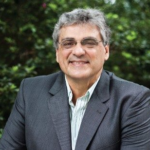 Roberto received his degree in Electrical Engineering from the Catholic University in Rio de Janeiro. He worked one year in the data communications department of EMBRATEL, then the government owned long-distance carrier. He then received Fulbright Scholarship for graduate studies at the University of Southern California, where he earned a Ph.D. in Electrical Engineering. Since 1978 Prof. de Marca has been on the faculty of the Catholic University, Rio de Janeiro, having held several leadership positions including Associate Academic Vice President, Director of Development and Vice-Dean of Science and Engineering Center. Throughout his career Roberto built an extensive international experience enjoying appointments in universities and industrial laboratories in different countries. Twice on leave he served as Scientific Consultant with AT&T Bell Laboratories, Murray Hill. In 2008 he was a Visiting Professor with the Hong Kong University of Science and Technology. He also held a Guest Scientist appointment with NEC Network Research Laboratories in Heidelberg, Germany. His technical activities at Bell Labs and NEC resulted in patents in the area of mobile communications.
Roberto received his degree in Electrical Engineering from the Catholic University in Rio de Janeiro. He worked one year in the data communications department of EMBRATEL, then the government owned long-distance carrier. He then received Fulbright Scholarship for graduate studies at the University of Southern California, where he earned a Ph.D. in Electrical Engineering. Since 1978 Prof. de Marca has been on the faculty of the Catholic University, Rio de Janeiro, having held several leadership positions including Associate Academic Vice President, Director of Development and Vice-Dean of Science and Engineering Center. Throughout his career Roberto built an extensive international experience enjoying appointments in universities and industrial laboratories in different countries. Twice on leave he served as Scientific Consultant with AT&T Bell Laboratories, Murray Hill. In 2008 he was a Visiting Professor with the Hong Kong University of Science and Technology. He also held a Guest Scientist appointment with NEC Network Research Laboratories in Heidelberg, Germany. His technical activities at Bell Labs and NEC resulted in patents in the area of mobile communications.
Earlier in his career he was also a Visiting Professor at the Politecnico di Torino, Italy, and a visiting scholar at UCLA, University of Toronto and Telecom Paris.
As Scientific Director of the Brazilian National Research Council, managing a 300 million dollar research funding program, Dr. de Marca authorized the startup money for the national research network that led the way to the widespread use of Internet in Brazil. He was a delegate to several ITU meetings where the wireless 3G specifications were developed and chaired one of the working groups. Recently, he served three years as a member of the presidential advisory committee of Finep, the largest Brazilian funding agency/bank for research and innovation.
RUSSELL LEFEVRE
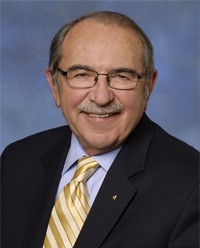 Russell Lefevre, B.S., M.S., Ph.D., is a Fellow of the IEEE and of AAAS. He is a Past President of IEEE-USA and IEEE Aerospace and Electronic Systems Society. During 2001, Dr. Lefevre was an IEEE-USA Congressional Fellow as Science Advisor to Senator Jay Rockefeller. He was Chair of the IEEE Steering Committee on Electric Vehicles, Founding Chair of the IEEE Humanitarian Technology Committee and a founding member of the IEEE Smart Grid Committee. He has an appointment as Adjunct Professor of Physics and Electrical Engineering at the University of North Dakota. He is currently a member of the Board of Governors of the IEEE Society on the Social Implications of Technology. He is a member of the Board of the Metropolitan Water District of Southern California.
Russell Lefevre, B.S., M.S., Ph.D., is a Fellow of the IEEE and of AAAS. He is a Past President of IEEE-USA and IEEE Aerospace and Electronic Systems Society. During 2001, Dr. Lefevre was an IEEE-USA Congressional Fellow as Science Advisor to Senator Jay Rockefeller. He was Chair of the IEEE Steering Committee on Electric Vehicles, Founding Chair of the IEEE Humanitarian Technology Committee and a founding member of the IEEE Smart Grid Committee. He has an appointment as Adjunct Professor of Physics and Electrical Engineering at the University of North Dakota. He is currently a member of the Board of Governors of the IEEE Society on the Social Implications of Technology. He is a member of the Board of the Metropolitan Water District of Southern California.
LEWIS M. TERMAN
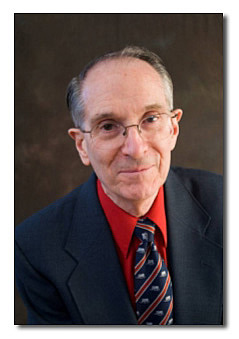 After receiving a Ph.D from Stanford in 1961, Lew worked at the IBM T. J. Watson Research Center for 45 years + 1 day, except for two years as the President of the IBM Academy of Technology in the IBM Corporate site in Somers, NY. He worked on semiconductor devices, circuits, technology and systems. He received six IBM Outstanding Contribution Awards, and three IBM Corporate Contribution Awards.
After receiving a Ph.D from Stanford in 1961, Lew worked at the IBM T. J. Watson Research Center for 45 years + 1 day, except for two years as the President of the IBM Academy of Technology in the IBM Corporate site in Somers, NY. He worked on semiconductor devices, circuits, technology and systems. He received six IBM Outstanding Contribution Awards, and three IBM Corporate Contribution Awards.
He joined the IRE (the predecessor of IEEE) in 1958, and has had numerous IEEE positions, including President of the Solid-State Circuits Society. President of the Electron Devices Society, Division 1 Director, Chair of the IEEE Awards Board, TAB Vice President, and the 2008 IEEE President. He has been involved in the creation of six new IEEE conferences, including GHTC.
He received the IEEE Solid-State Circuits Technical Field Award “For leadership in the field of MOS Devices and Circuits for Semiconductor Memories”, and the IEEE Society on Social Implications of Technology Brian O’Connell Award in 2016 for contributions to the advancement of SSIT. He was elected to the TAB Hall of Honor in 2018. He is an IEEE Life Fellow and a member of the US National Academy of Engineering.
He is currently the Secretary of the SSIT and is on the advisory committee for GHTC.
JOHN VIG
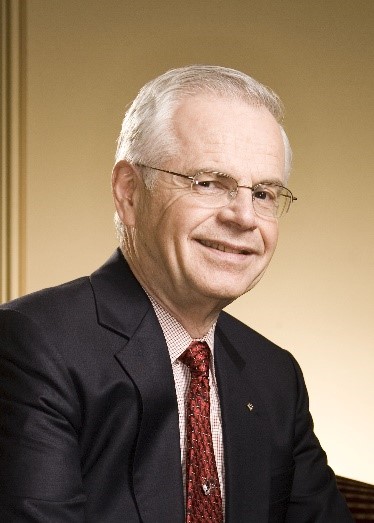 John Vig was born in Budapest, Hungary. His family entered the USA, as refugees, when he was 14. He received his Ph.D. in Physics from Rutgers – The State University (NJ, USA). Throughout his professional career, working as a physicist, electronics engineer and program manager, he performed and led research aimed at developing precision clocks, sensors and low-noise oscillators. In 1989, he was elected Fellow of the IEEE “for contributions to the technology of quartz crystals for precision frequency control and timing.” He is now working as a part-time consultant and full-time volunteer.
John Vig was born in Budapest, Hungary. His family entered the USA, as refugees, when he was 14. He received his Ph.D. in Physics from Rutgers – The State University (NJ, USA). Throughout his professional career, working as a physicist, electronics engineer and program manager, he performed and led research aimed at developing precision clocks, sensors and low-noise oscillators. In 1989, he was elected Fellow of the IEEE “for contributions to the technology of quartz crystals for precision frequency control and timing.” He is now working as a part-time consultant and full-time volunteer.
John’s service to IEEE included serving as the IEEE President & CEO in 2009, six years on Board of Directors, Vice President of Technical Activities and the Director of Division IX.
He has been awarded 55 patents, has published more than 100 papers and nine book chapters, and his papers have been cited more than 5,000 times. He serves as a volunteer on his hometown’s Environmental Commission; and on his County’s Environmental Council. In his spare time, he and his wife enjoy ballroom dancing.





